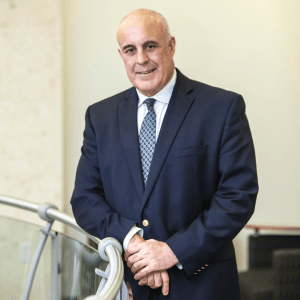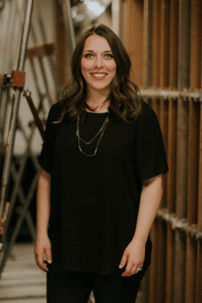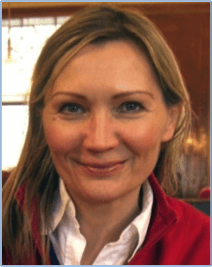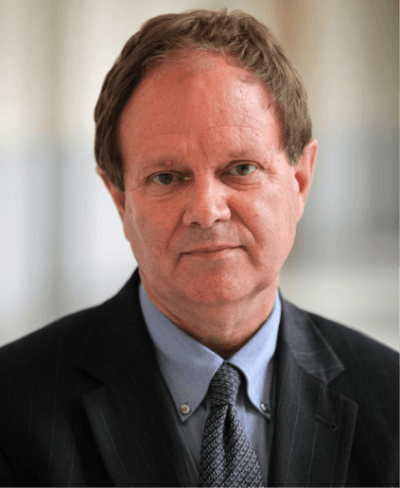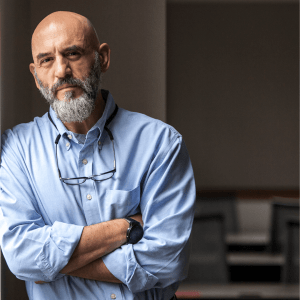Dr. Nicos Makris is a Hunt Institute Fellow collaborating in the Global Development Lab focused on his passion for researching low-cost seismic solutions, more specifically in rocking isolation. The initial project began with Dr. Makris’ work on Filling the Gap for Seismic Protection. During the COVID 19 pandemic, the work shifted to focus on Resilient Shelter, Phase I with Kostas Kalfas (Ph.D. student and researcher), Corrie A. Harris (Portfolio Manager), JuliaGrace Walker (Undergraduate Project Manager), Sam Borton (Undergraduate Research Analysis). The conclusion of Phase I resulted in a report titled Seeking Low-cost seismic Protection for Urban Masonry in an Unstable Terrain.
Professor Nicos Makris received his Ph.D. (1992) and his Master of Science (1990) from the State University of New York at Buffalo, USA; while he holds a Diploma in Civil Engineering from the National Technical University, Athens, Greece. He has more than thirty (30) years of research, academic and professional experience in the areas of structural-earthquake engineering and structural mechanics-dynamics.
He has served as Assistant Professor at the University of Notre Dame (1992-1996) and at the University of California, Berkeley (1996-1998); Associate Professor at the University of California, Berkeley (1998-2002) and Professor at the University of California, Berkeley (2002- 2005), the University of Patras (2003-2014), the University of Central Florida (2014- 2018) and at Southern Methodist University (2018-present).
His research interests include the analysis, design, and protection of structures against natural and man-made hazards—from modern tall bridges and buildings to unreinforced masonry and historic structures, system identification and health monitoring studies, soil-structure interaction, and the reconstruction-preservation of ancient monuments and stone arches in areas with high seismic hazard. He has published more than 110 papers in archival journals, 120 papers in conference proceedings, and 30 technical research reports and monographs. His citation index is more than 9,200, while his H-index=52.
He has served as Associate Editor for the Journal of Engineering Mechanics, ASCE, and the Chair of the Dynamics Committee on the same Journal. He is a member of Academia Europaea “The Academy of Europe”, a distinguished visiting fellow of the Royal Academy of Engineering, the UK, a member of the Congress Committee and General Assembly of IUTAM; while, he has been honored with several international prizes and awards including the Walter L. Huber Civil Engineering Research Prize from the American Society of Civil Engineering (ASCE) for his original contribution on the development of energy dissipation devices and for improving our understanding on the role of damping for the seismic protection of structures, the T. K. Hsieh Award from the Institution of Civil Engineers, the U.K. for the best paper in the Geotechnique Journal during year 1997, the Shah Family Innovation Prize from the Earthquake Engineering Research Institute (EERI), USA and the CAREER Award from the National Science Foundation, USA. He has directed as Principal Investigator more than 30 funded research projects in the USA and Europe with emphasis on structural testing and experimental methods. Professor Makris has also served for six (6) consecutive years as the Director of Reconstruction of the Temple of Zeus in Ancient Nemea, Greece. During that period (Jan 2004—Dec 2009) four entire columns and their capitals have been reconstructed.
When asked what his motivation is to do impact work he replied, “Part of our role as structural engineers is the design and construction of structures that are affordable to the local society and meet acceptable performance levels as present and the years to come without compromising the ability of future generations to use them, maintain them, and benefit from them.” Achieving this is his motivation.
To read more about the Hunt Institute’s work to develop future-focused solutions to some of the world’s biggest problems, please click here. For the latest news on the Hunt Institute, follow our social media accounts on LinkedIn, Facebook, and Instagram. We invite you to listen to our Podcast called Sages & Seekers. If you are considering engaging with the institute, you can donate, or sign-up for our newsletter by emailing huntinstitute@smu.edu.

